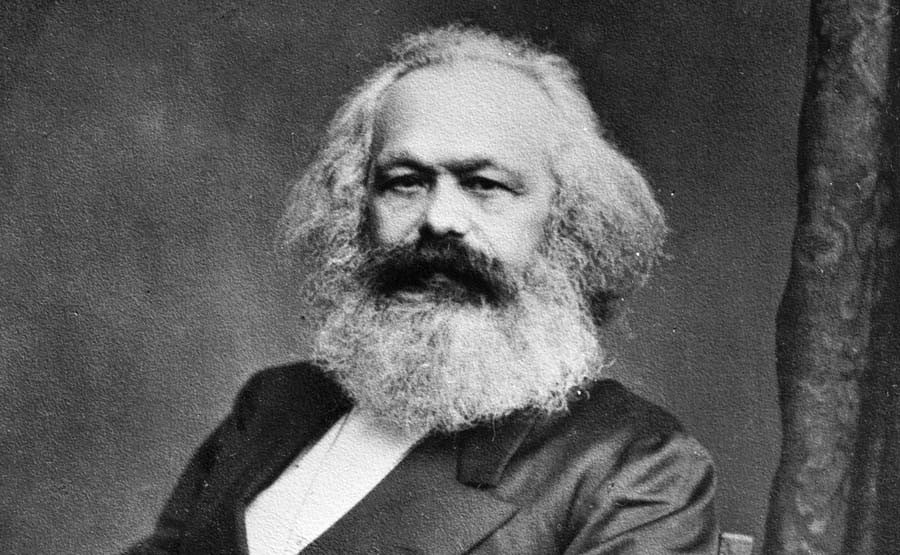
With growing inequality, Marx’s clarion call to the workers of the world will continue to resonate and exercise its charm as a siren song for the poor and dispossessed

"He a Moses without illumination; he a Christ without a cross.
He is not a Prophet with Divine Revelation but carries a Book under his arm" -- Iqbal on Marx in Armaghan-e-Hijaz.
Karl Marx, born two hundred years ago on May 5, was prophet of revolutions. He considered revolutions as locomotives of history and advocated them as legitimate mean of change. Friedrich Engel, his closest friend and collaborator, remarked in his funeral oration that Marx was first and foremost a revolutionary. Distinguished British historian AJP Taylor further declared: "Marx was a revolutionary first and last. He did not preach revolution to achieve Socialism; he became a Socialist to achieve revolution."
Karl Marx propounded a theory of history based on progress through a series of class revolutions. First, said Marx, the capitalists will throw out absolute kings and hereditary nobles; then workers will rise up and throw out capitalists, who will be replaced by communist states. Marx, however, was only partially right; workers in Europe and America came together to form unions and demanded better wages and working conditions instead of staging a revolution. Only in agrarian countries outside Europe, such as Russia and China, did Marx’s vision of peasant societies making a transition to communist states come true.
Communist China’s evolution from a failed centrally planned economy to global economic powerhouse, after embracing market-oriented reforms since 1979, would have baffled Marx who was wrong about the inexorable march of history from capitalism to communism. He never envisaged a post-socialist state with a growing market economy operating under the guiding hand of the state, as it is happening in China today.
Born in Trier in Germany in 1818, Marx spent most of his adult life in exile, initially in France for a short while and then, for decades, in London till his death in 1883. He never visited a factory yet commanded workers to take control of the means of production. He missed noticing a prosperous middle class growing up around him all over London, thus challenging, if not contradicting, his theory about what he termed the imminent collapse of capitalism. Unlike his young contemporary Alfred Marshall, Marx failed to see statistical evidence that the share of the working class in the nation’s wealth was on the rise.
About human nature, Marx wrongly assumed that it can be moulded into any form, given the right conditions. It was a costly misjudgment leading to horrible and horrendous experiments in social engineering in the twentieth century.
Marx famously wrote that philosophers had only interpreted the world, when the real point was to change it. Marx, undoubtedly, changed the world; most impressively, he pulled it off by spending time, reading and writing for around three decades, in British Museum Reading Room in London, which then housed British Library’s collection.
Marx needs to be separated from Marxism. While Marxism as a creed has failed, Marx, as an individual, altered human thinking and global history with the power of his ideas. In any case, he cannot be held responsible for subversion, re-interpretation or distortion of his thoughts and theories, when put into practice later, by the Bolshevik and other Communist leaders in the erstwhile Soviet Union and satellite states. As AJP Taylor poignantly put it, Lenin did to Marx what Paul did to Christ.
One of the founding fathers of Sociology, Marx’s seminal influence on this subject has been long lasting than on other fields. It has been said that Max Weber, another pioneer of the discipline, spent his life "having a posthumous dialogue with the ghost of Marx". Apart from Communism, his ideas also significantly influenced the concept and subsequent development of social welfare state and social democracy.
He was described, even by a sympathetic biographer like EH Carr, as ‘the genius of destruction, not construction’. Although he failed to build a viable alternative, Marx remains the most trenchant analyst and critic of capitalism.
Marx got many things right. He correctly prophesised the advent of globalisation, explained the volatility of boom and bust business cycles, and exposed the inherent contradictions and pathologies of capitalism. He presciently foresaw the emergence of large monopoly firms and domination of market by big-business. His argument for a progressive income tax in The Communist Manifesto sounded radical about a hundred and fifty years back, but now it is the norm globally.
Most importantly, he emphasised the primacy of economic forces in human society and predicted profound changes in it due to capitalism and industrialisation. Nearly two decades after the overthrow of Communism, the global financial crisis in 2008 re-ignited interest in Marx’s books and his continuing relevance to the modern world.
Oxfam, a well-respected charity firm, recently reported that 82 per cent of the wealth created last year went to the richest one per cent of the global population, while the 3.7 billion people who make up the poorest half of humanity got nothing. With growing inequality, Marx’s clarion call to the workers of the world will continue to resonate and exercise its charm as a siren song for the global poor and dispossessed.
In his book The Worldly Philosophers, Robert Heilbroner was spot-on when he concluded, "We turn to Marx, therefore, not because he is infallible, but because he is inescapable."